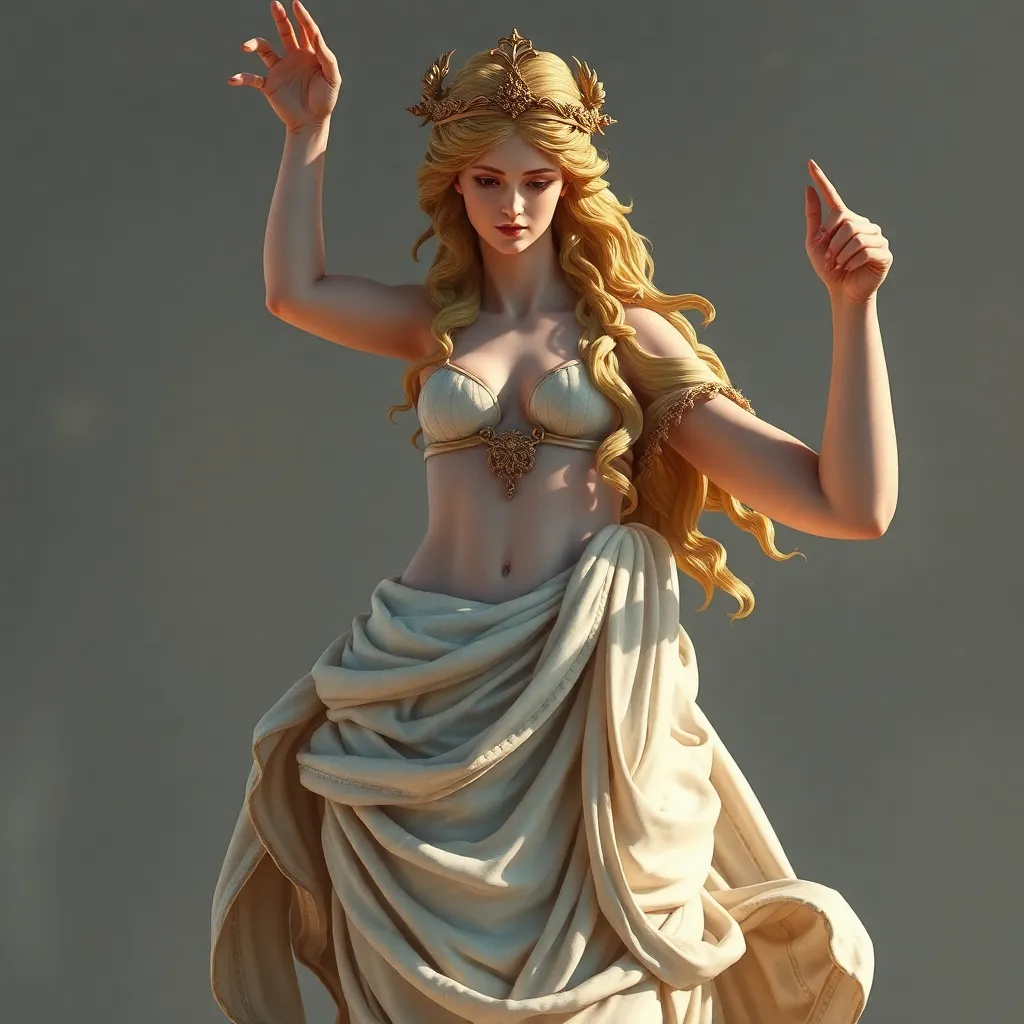The Role of Aphrodite in the Myths of Cadmus: Love and Transformation
I. Introduction
Greek mythology is a rich tapestry of stories and characters, with each myth revealing the complexities of human emotions and the divine influence on mortal lives. Among these tales, the story of Cadmus stands out as a narrative of love, loss, and transformation, intricately intertwined with the goddess Aphrodite. This article explores the profound role of Aphrodite in the myths surrounding Cadmus, highlighting the themes of love and transformation that resonate throughout their stories.
II. Cadmus: The Founder of Thebes
Cadmus, the legendary founder of Thebes, is a figure steeped in myth and history. He was a Phoenician prince, the son of King Agenor and Queen Telephassa, and his adventures began with a quest to find his sister, Europa, who had been abducted by Zeus.
- Background and Lineage: Cadmus hailed from a noble lineage, being a member of the royal family of Tyre. His lineage is significant as it connects him to various gods and heroes within Greek mythology.
- Quest for Europa: Driven by a sense of duty and love for his sister, Cadmus traveled across lands in search of her, eventually consulting the Oracle of Delphi for guidance.
- Establishment of Thebes: Following the oracle’s advice, Cadmus sowed the teeth of a dragon he had slain, leading to the birth of the Spartoi, warriors who helped him establish the city of Thebes, a significant cultural and political center in ancient Greece.
III. The Influence of Aphrodite on Love and Relationships
Aphrodite, the goddess of love, beauty, and desire, holds a crucial role in Greek mythology, influencing not just the lives of gods but also those of mortals. Her presence in the myths of Cadmus reveals how love can lead to both joy and transformation.
- Aphrodite’s Role: As the embodiment of love, Aphrodite governs relationships, inspiring passion and connection between individuals.
- Impact on Mortal Relationships: In various myths, Aphrodite’s influence often results in dramatic changes, showcasing the power of love to alter destinies and relationships.
- Connection to Transformation: Love, as represented by Aphrodite, is closely linked to transformation. In many stories, love leads to personal growth, sacrifice, and even metamorphosis.
IV. The Myth of Cadmus and Harmonia
Central to Cadmus’s story is his union with Harmonia, a daughter of Ares and Aphrodite. Their relationship is a poignant example of how love can shape narratives in mythology.
- Introduction of Harmonia: Harmonia embodies the ideal of marital harmony and balance, making her a fitting partner for Cadmus.
- Divine Gifts: Their wedding was marked by divine gifts, including the famous necklace of Harmonia, which symbolized both beauty and the complexities of love.
- Symbolic Significance: Their union represents the merging of love and fate, suggesting that their destinies are intertwined through divine intervention.
V. Transformation through Love: The Story of Cadmus and Harmonia
The story of Cadmus and Harmonia culminates in a dramatic transformation that encapsulates the essence of love and its consequences.
- Metamorphosis into Serpents: In their later years, Cadmus and Harmonia were transformed into serpents, a metamorphosis that reflects both a punishment and a form of eternal unity.
- Themes of Love and Transformation: Their story highlights the duality of love: it can lead to blissful union or profound change, often accompanied by challenges that test the strength of their bond.
- Interpretation of Transformation: This transformation can be seen as a representation of the enduring nature of their love, suggesting that true love transcends the mortal realm and can adapt to new forms.
VI. Aphrodite’s Role in the Wider Context of Cadmus’s Journey
Aphrodite’s influence extends beyond the immediate relationship of Cadmus and Harmonia, affecting various aspects of Cadmus’s journey.
- Interactions with Other Gods: Aphrodite’s presence in the myths often serves to mediate relationships between other divine beings, showcasing her role as a connector of fates.
- Love, Fate, and Divine Intervention: The interplay of love and fate is a recurring theme in Cadmus’s life, with Aphrodite frequently intervening to guide or complicate his journey.
- Contrast of Romantic and Other Forms of Love: While Cadmus’s love for Harmonia is central, other relationships in his life, including those with his family and the gods, illustrate the multifaceted nature of love.
VII. Legacy and Cultural Significance of Cadmus and Aphrodite
The stories of Cadmus and Aphrodite have left an indelible mark on literature, art, and culture, continuing to resonate through the ages.
- Influence on Literature and Art: Their myth has inspired countless works of art, poetry, and literature, highlighting themes of love, loss, and transformation.
- Relevance in Modern Culture: The enduring nature of their story reflects contemporary understandings of love, making it relevant in today’s discussions about relationships.
- Aphrodite’s Impact: As a symbol of love and transformation, Aphrodite’s influence remains significant, reminding us of the power of love in shaping our lives.
VIII. Conclusion
Aphrodite’s role in the myths of Cadmus is a testament to the enduring power of love and transformation in Greek mythology. Through Cadmus’s journey, we see how love can lead to profound changes, intertwining the fates of mortals and gods alike. As we reflect on their stories, it becomes clear that the themes of love and transformation are not only central to mythology but also resonate deeply within the human experience, reminding us of the delicate interplay between the divine and mortal realms.




